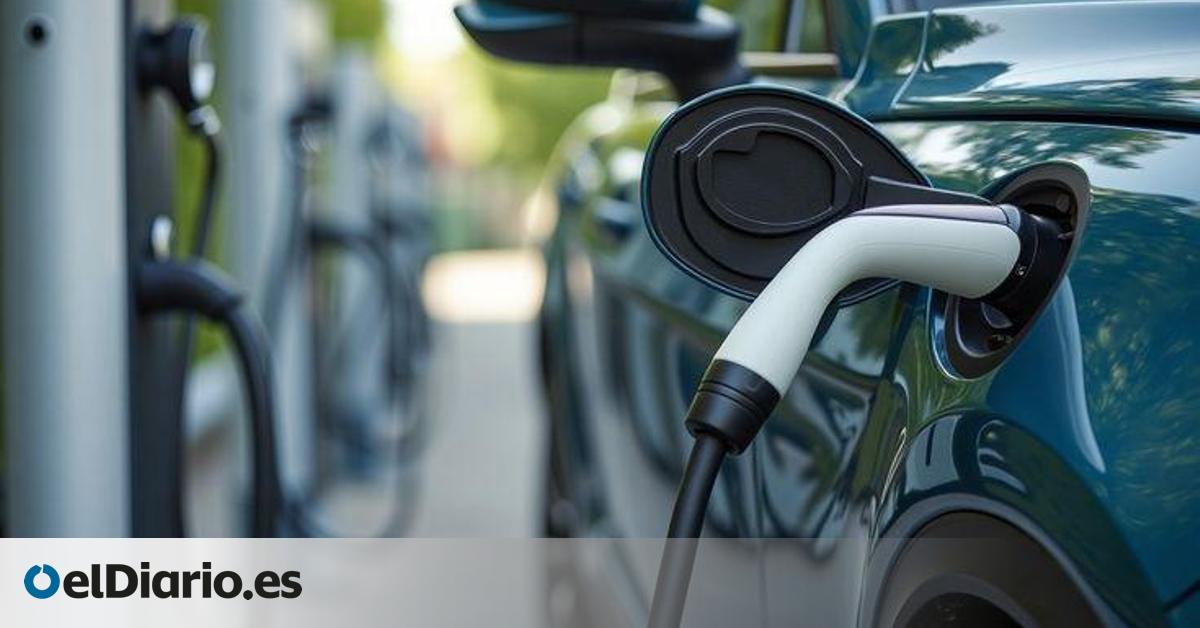
Plug-in hybrid electric vehicles (PHEV) emit almost five times more planet-warming pollutants than official figures show, according to a study by Transport & Environment, a European federation that brings together non-profit organizations working in the field of transportation and the environment.
European carmakers have promoted these cars, which can run on electric batteries as well as combustion engines, as a way to travel long distances in a single trip, unlike all-electric cars, while reducing emissions.
Data shows that PHEVs emit just 19% less CO2 than petrol and diesel cars, according to Transport & Environment analysis published on Thursday. In laboratory tests, they were assumed to be 75% less polluting.
Researchers analyzed data from onboard fuel consumption meters of 800,000 cars registered in Europe between 2021 and 2023. They found that actual carbon dioxide emissions from PHEVs in 2023 were 4.9 times higher than those from standardized laboratory tests, having increased from 3.5 times higher in 2021.
“Actual emissions are increasing, while official emissions are decreasing,” says Sofía Navas Gohlke, researcher at Transport & Environment and co-author of the report. “This difference is growing and is a real problem. As a result, PHEVs pollute almost as much as gasoline cars.”
The researchers attributed most of the difference to an overestimation of the “utility factor” — the ratio of kilometers driven in electric mode to total kilometers driven — and found that 27% of driving was done in electric mode, although official estimates assumed 84%. The European Commission has announced two corrections to the profit factor ratio that will reduce the gap, but will not eliminate it completely, according to the analysis.
Even when the cars were driven in electric mode, the analysis revealed that pollution levels were well above official estimates. The researchers say this is because electric motors are not powerful enough to operate alone, so their engines burned fossil fuels for almost a third of the distance traveled in electric mode.
Patrick Plötz, director of energy economics at the Fraunhofer Institute for Systems Research and Innovation, who was not involved in the study, explains that the study constitutes a “very useful contribution” after years in which parts of the automotive industry argued that there was not enough data to accurately assess emissions in the real world.
“The results demonstrate, without a doubt, that the difference between the official and real fuel consumption and CO2 emissions of PHEVs is much greater than in the case of gasoline or diesel cars,” says Plötz, who has published research on the subject. “Any policy changes regarding PHEVs must be made with the utmost care and with that data in mind.”
In the midst of the debate about the end of combustion engines
Hybrid cars have once again become the subject of political debate, as car manufacturers have pressured the EU to soften CO2 targets. The ban on combustion engine cars from 2035 has been subject to strong pressure from the car industry and opposition from Member States with large car industries.
“There should be no drastic cut in 2035,” German Chancellor Friedrich Merz said after a summit last week with the country’s struggling auto industry, promising to do “everything in [su] other high-ranking German politicians have raised plug-in hybrids as an example of possible “flexibilities” they could introduce into legislation.
Researchers estimate that underestimating PHEV emissions would have allowed four major car manufacturing groups to avoid more than €5bn (£4.3bn) in fines between 2021 and 2023, by artificially making it easier to meet EU targets for average fleet CO2 emissions. They also add that PHEV drivers would also pay about 500 euros more per year in operating costs than would be assumed according to laboratory tests.
“The bold claims manufacturers like to make about their plug-in hybrid vehicles are clearly far from reality,” says Colin Walker, transportation analyst at the Energy and Climate Intelligence Unit.
“Consumers are being fooled into believing that by purchasing a PHEV, they are helping the environment and saving money,” he says. “In reality, PHEVs are little better than regular gasoline and diesel cars when it comes to the fuel they consume, the CO2 they produce and the money they cost to run.”
Source: www.eldiario.es

